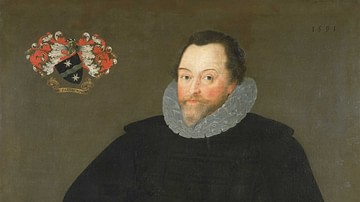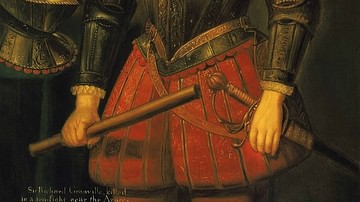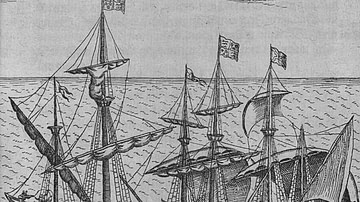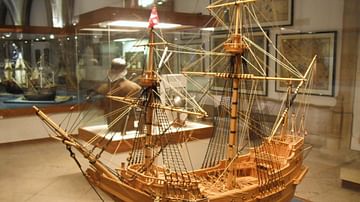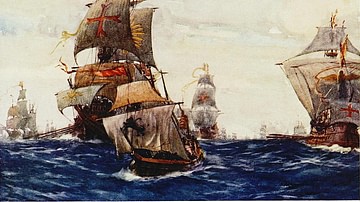The reign of Elizabeth I of England (1558-1603 CE) witnessed an extraordinary spurt of exploration as tiny wooden ships boldly set sail from English shores to cross the world's oceans. Famous mariners like Francis Drake, Martin Frobisher and Walter Raleigh combined geographical curiosity with an insatiable thirst for the riches to be taken from foreign traders and indigenous communities.
The period saw circumnavigations, numerous attempts to find the Northwest Passage, and England's first colony in North America. Exotic goods such as tobacco and spices were brought back to England which would have a lasting cultural impact. Above all, the success of the period encouraged British monarchs thereafter to entertain the idea of territorial conquest entirely independent of Continental Europe so that the medieval ambitions in France were replaced by post-modern dreams of a global empire. In this collection, we look in detail at some of the key figures in this process and consider the consequences of Elizabeth I's interest in sponsoring expeditions with the overlapping aims of trade, privateering and colonialism.
On 4 April 1581 CE, Elizabeth boarded the Golden Hind docked at Deptford on the Thames and, pleased with the treasures he had captured and the glory of his navigational achievements, knighted Drake on its decks...Drake had become Elizabeth's favourite sea dog, a feeling that must have been mutual as the mariner often gave his queen lavish gifts such as a gold crown embedded with emeralds and a diamond-studded cross in 1581 CE.


